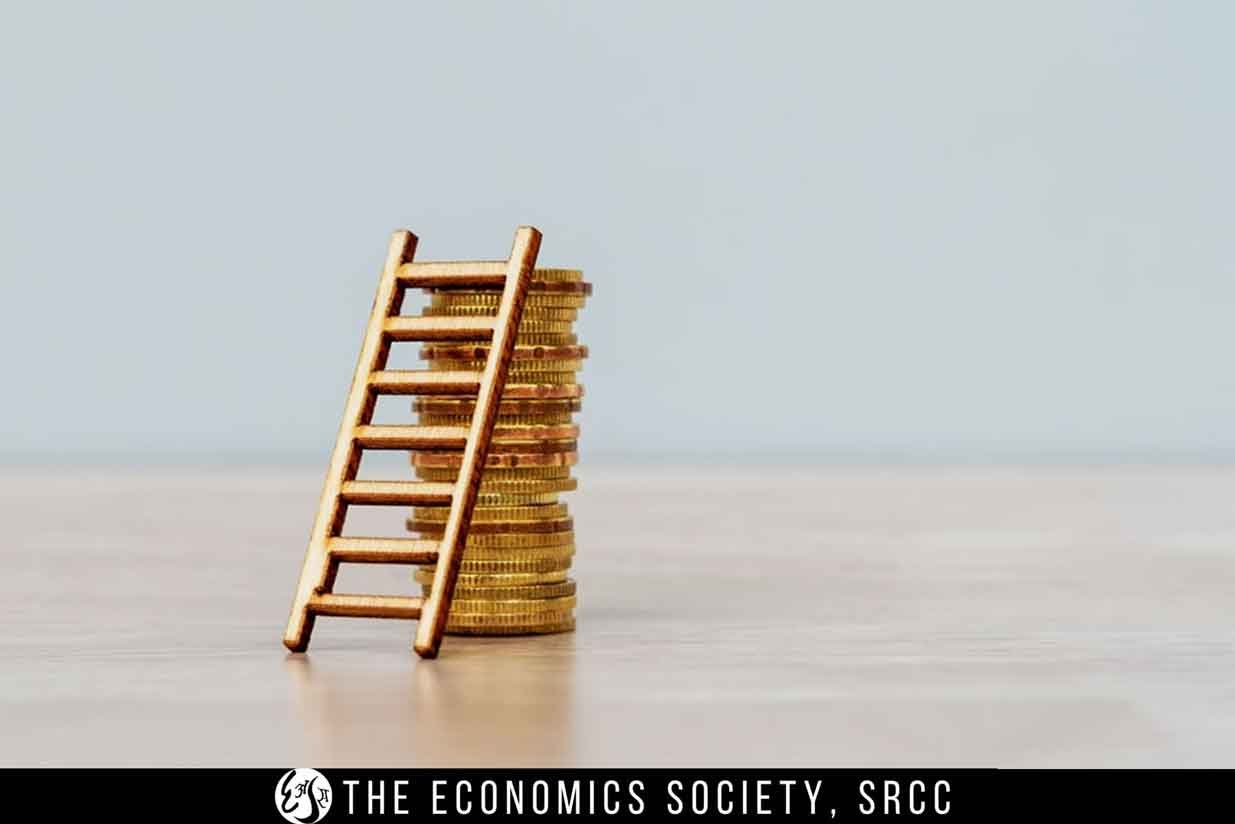
Published in:
Global
Stewardly Capitalism

(A Review of Prosperity: Better Business Makes the Greater Good by Colin Mayer. 2018. Oxford University Press. Oxford. Paperback. Pp.261. Price: £ 16.99)
Can the role of business be that of a steward, and not of a predator?
The Business of Humanity Project founded by the prestigious Katz Graduate School of Business and the Swanson School of Engineering at the University of Pittsburgh has given the answer in the positive. It has proposed the onset, in the business world, of counterintuitive but simple and powerful ideas about how companies can add value by overcoming three critical challenges characterizing today’s business environment, namely disruptive technologies, conflicted stakeholders and unknowable futures, by strategizing to enhance sustainability on all the three dimensions—economic, environmental, and social (Camillus et al. 2017).
Similarly, since its inception in 1986, the World Business Academy, with focus on climate change and energy security, gives an affirmative normative answer- the business community must work for a healthy planet and a healthy human civilization by “taking responsibility for the whole” (https://worldbusiness.org). As the founder of the World Business Academy and JUST Capital, Rinaldo Brutoco has hailed the World Economic Forum for endorsing “stakeholder capitalism” as against “shareholder capitalism”, in the January 2020 annual meeting of the World Economic Forum. This has ushered in the post-Milton Friedman world of business, we are told. In the early 1970s, Milton Friedman of the Chicago School of Economics famously stated that the sole purpose of business was to earn profits for shareholders, preferably on an accelerating quarter by quarter basis, and all other stakeholders should be ignored. This Friedman dictum is now turned on its head by observing that the proper role of a corporation in modern society is to serve all its stakeholders, including employees, customers, vendors, shareholders and the communities being served by the business. That business must act as a steward of the society from which it emerges rather than as a predator of that same society is the biggest shift in business thinking since 1970.
The book under review is a seminal contribution in the same vein. It should not be taken as the original gospel of the above revolutionary thinking. The author, Colin Mayer of the extraordinary Said Business School, is compared to John Maynard Keynes. Keynes, the greatest 20th century macroeconomist, became famous for saving capitalism from drowning in economic depression and Mayer, as an economist, and a financial economist at that, is now hailed for writing limpidly the Bible of ‘enlightened capitalism’ that business can and should be a force for societal good. In other words, Mayer exudes definitive optimism that a ‘more inclusive capitalism’ model can be built by hammering the final nail in Milton Friedman’s or Chicago School’s intellectual coffin: “Extract the firm from the shackles of the Friedman principles and it will free man of the shekels expected by its principals.”
No management student and teacher thinking about management today for a better tomorrow should, therefore, miss following the podcasts of World Business Academy and reading the book by Camillus et al. (2017), and then this book. There is an opportunity for students and teachers of business and economics to examine whether the World Business Academy, the Business of Humanity Project and this book are merely whitewashing super-duper exercises or lullabies like Twinkle Twinkle Little Star, How I Wonder What You Are!
In Part 1 of the book, Mayer takes to task the “Friedman doctrine”, with which virtually every MBA course begins and the rest follows from that. This doctrine shackles the corporation to one particular manifestation, and it is at variance with its intellectual origins in the Age of Enlightenment as a balance between ethics and economic efficiency. The notion of the firm in this book is that of a multi-faceted organization that produces profitable solutions to problems of people and planet.
< In Part 2 of the book, Mayer documents the 2000-year history of corporate evolution. And he points out where this went wrong. It is only over the last fifty of its 2000-year existence that we have witnessed the retreat of the multi-purposed, publicly oriented corporation into a single-focused, self-interested entity. This is the most marvellous part of the book, in my opinion.
In Part 3 of the book, Mayer attacks business practices. The teaching of the business-school courses that there is a best way of doing business—learn from cases of currently or recently successful businesses about finance, leadership, marketing, operations management, organizational practice, and strategy—so that your success as an entrepreneur, manager, or business leader is assured, is false. “Yesterday’s successful business practices are destined to be tomorrow’s business graveyards. Every business book should come with the health warning that the past is no guide to the future.” The source of corporate success is business innovation, not replication.
In Part 4 of the book, Mayer describes how the transformation of corporations can be translated from a visionary idea to a practical reality by incorporating the multi-faceted purpose in company law.
In Part 5 of the book, Mayer describes how the public sector can promote social good, through finance and taxation, and infrastructure and investment. It discusses the role of the state as a corporation that coordinates the provision of goods and services, which the private sector on its own fails to deliver. The state as a corporation creating social and public goods reminds us of the Roman origins of the corporation as a provider of public works.
To conclude, the prosperity of the few—shareholders and executives—at the expense of the many—employees, customers, and communities—and the unborn—future generations—is not the prosperity that this book conveys.
In the words of the author, “The corporation is the creator of wealth, the source of employment, the deliverer of new technologies, the provider of our needs, the satisfier of our desires, and the means to our ends. It clothes, feeds, and houses us. It employs us and invests our savings. It is the source of economic prosperity and the growth of nations around the world. At the same time, it is the source of inequality, deprivation, and environmental degradation, and the problems are getting worse. They are getting worse because the corporation is getting bigger to a point where in some cases it is larger than nation-states. And as nations find themselves unable to service their debt obligations, they turn to corporations to supply the goods and services that they provided in the past. But is the corporation capable of bearing the responsibilities that are being placed on its shoulders? The evidence is not encouraging. Over the last few years, there has been a steady erosion of trust in business. At first, we associated this with just banks and financial institutions after the financial crisis of 2008, but we are increasingly recognizing that it afflicts everything from automobiles to energy, from food to pharmaceuticals. At the same time, technological advances, offer greater opportunities today than at any time in the past for business to transform our lives for the better, in everything from automobiles to energy, from food to pharmaceuticals. How can we ensure that we harness business as a source of societal benefits and avoid its detriments? How do we make it the creator of prosperity of the many, not just a few, and of the future, not just the< past? These are the questions to which this book seeks answers.”
That, in a nutshell, is the power and glory of this book, which is an outcome of the British Academy programme on the Future of the Corporation—a major cross-disciplinary programme of research into how the corporation will need to adapt over the coming decades to address the economic, political, social, and technological challenges and opportunities it confronts.
By Annavajhula J.C. Bose, PhD
Department of Economics, SRCC
REFERENCES
John C. Camillus, Bopaya Bidanda, and N. Chandramohan. 2017. The Business of Humanity: Strategic Management in the Era of Globalisation, Innovation and Shared Value. Routledge.
Rinaldo S. Brutoco. 2020. Perspectives: Welcome to the New Business Paradigm. Montecido Journal. 3.12.20 edition.
Can the role of business be that of a steward, and not of a predator?
The Business of Humanity Project founded by the prestigious Katz Graduate School of Business and the Swanson School of Engineering at the University of Pittsburgh has given the answer in the positive. It has proposed the onset, in the business world, of counterintuitive but simple and powerful ideas about how companies can add value by overcoming three critical challenges characterizing today’s business environment, namely disruptive technologies, conflicted stakeholders and unknowable futures, by strategizing to enhance sustainability on all the three dimensions—economic, environmental, and social (Camillus et al. 2017).
Similarly, since its inception in 1986, the World Business Academy, with focus on climate change and energy security, gives an affirmative normative answer- the business community must work for a healthy planet and a healthy human civilization by “taking responsibility for the whole” (https://worldbusiness.org). As the founder of the World Business Academy and JUST Capital, Rinaldo Brutoco has hailed the World Economic Forum for endorsing “stakeholder capitalism” as against “shareholder capitalism”, in the January 2020 annual meeting of the World Economic Forum. This has ushered in the post-Milton Friedman world of business, we are told. In the early 1970s, Milton Friedman of the Chicago School of Economics famously stated that the sole purpose of business was to earn profits for shareholders, preferably on an accelerating quarter by quarter basis, and all other stakeholders should be ignored. This Friedman dictum is now turned on its head by observing that the proper role of a corporation in modern society is to serve all its stakeholders, including employees, customers, vendors, shareholders and the communities being served by the business. That business must act as a steward of the society from which it emerges rather than as a predator of that same society is the biggest shift in business thinking since 1970.
The book under review is a seminal contribution in the same vein. It should not be taken as the original gospel of the above revolutionary thinking. The author, Colin Mayer of the extraordinary Said Business School, is compared to John Maynard Keynes. Keynes, the greatest 20th century macroeconomist, became famous for saving capitalism from drowning in economic depression and Mayer, as an economist, and a financial economist at that, is now hailed for writing limpidly the Bible of ‘enlightened capitalism’ that business can and should be a force for societal good. In other words, Mayer exudes definitive optimism that a ‘more inclusive capitalism’ model can be built by hammering the final nail in Milton Friedman’s or Chicago School’s intellectual coffin: “Extract the firm from the shackles of the Friedman principles and it will free man of the shekels expected by its principals.”
No management student and teacher thinking about management today for a better tomorrow should, therefore, miss following the podcasts of World Business Academy and reading the book by Camillus et al. (2017), and then this book. There is an opportunity for students and teachers of business and economics to examine whether the World Business Academy, the Business of Humanity Project and this book are merely whitewashing super-duper exercises or lullabies like Twinkle Twinkle Little Star, How I Wonder What You Are!
In Part 1 of the book, Mayer takes to task the “Friedman doctrine”, with which virtually every MBA course begins and the rest follows from that. This doctrine shackles the corporation to one particular manifestation, and it is at variance with its intellectual origins in the Age of Enlightenment as a balance between ethics and economic efficiency. The notion of the firm in this book is that of a multi-faceted organization that produces profitable solutions to problems of people and planet.
< In Part 2 of the book, Mayer documents the 2000-year history of corporate evolution. And he points out where this went wrong. It is only over the last fifty of its 2000-year existence that we have witnessed the retreat of the multi-purposed, publicly oriented corporation into a single-focused, self-interested entity. This is the most marvellous part of the book, in my opinion.
In Part 3 of the book, Mayer attacks business practices. The teaching of the business-school courses that there is a best way of doing business—learn from cases of currently or recently successful businesses about finance, leadership, marketing, operations management, organizational practice, and strategy—so that your success as an entrepreneur, manager, or business leader is assured, is false. “Yesterday’s successful business practices are destined to be tomorrow’s business graveyards. Every business book should come with the health warning that the past is no guide to the future.” The source of corporate success is business innovation, not replication.
In Part 4 of the book, Mayer describes how the transformation of corporations can be translated from a visionary idea to a practical reality by incorporating the multi-faceted purpose in company law.
In Part 5 of the book, Mayer describes how the public sector can promote social good, through finance and taxation, and infrastructure and investment. It discusses the role of the state as a corporation that coordinates the provision of goods and services, which the private sector on its own fails to deliver. The state as a corporation creating social and public goods reminds us of the Roman origins of the corporation as a provider of public works.
To conclude, the prosperity of the few—shareholders and executives—at the expense of the many—employees, customers, and communities—and the unborn—future generations—is not the prosperity that this book conveys.
In the words of the author, “The corporation is the creator of wealth, the source of employment, the deliverer of new technologies, the provider of our needs, the satisfier of our desires, and the means to our ends. It clothes, feeds, and houses us. It employs us and invests our savings. It is the source of economic prosperity and the growth of nations around the world. At the same time, it is the source of inequality, deprivation, and environmental degradation, and the problems are getting worse. They are getting worse because the corporation is getting bigger to a point where in some cases it is larger than nation-states. And as nations find themselves unable to service their debt obligations, they turn to corporations to supply the goods and services that they provided in the past. But is the corporation capable of bearing the responsibilities that are being placed on its shoulders? The evidence is not encouraging. Over the last few years, there has been a steady erosion of trust in business. At first, we associated this with just banks and financial institutions after the financial crisis of 2008, but we are increasingly recognizing that it afflicts everything from automobiles to energy, from food to pharmaceuticals. At the same time, technological advances, offer greater opportunities today than at any time in the past for business to transform our lives for the better, in everything from automobiles to energy, from food to pharmaceuticals. How can we ensure that we harness business as a source of societal benefits and avoid its detriments? How do we make it the creator of prosperity of the many, not just a few, and of the future, not just the< past? These are the questions to which this book seeks answers.”
That, in a nutshell, is the power and glory of this book, which is an outcome of the British Academy programme on the Future of the Corporation—a major cross-disciplinary programme of research into how the corporation will need to adapt over the coming decades to address the economic, political, social, and technological challenges and opportunities it confronts.
By Annavajhula J.C. Bose, PhD
Department of Economics, SRCC
REFERENCES
John C. Camillus, Bopaya Bidanda, and N. Chandramohan. 2017. The Business of Humanity: Strategic Management in the Era of Globalisation, Innovation and Shared Value. Routledge.
Rinaldo S. Brutoco. 2020. Perspectives: Welcome to the New Business Paradigm. Montecido Journal. 3.12.20 edition.


